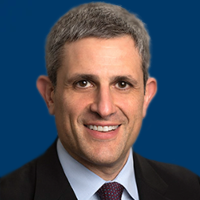Video
Dr. Lonial on the Role of Targeted Therapy in AML and ALL
Author(s):
Sagar Lonial, MD, FACP, discusses the role of targeted therapy in acute myeloid leukemia and acute lymphoblastic leukemia.
Sagar Lonial, MD, FACP, professor and chair, Department of Hematology and Medical Oncology, Emory University School of Medicine, chief medical officer, Winship Cancer Institute of Emory University, discusses the role of targeted therapy in acute myeloid leukemia (AML) and acute lymphoblastic leukemia (ALL).
Targeted therapy for patients with FLT3-mutant AML as well as emerging data with monoclonal antibodies, bispecific T-cell engagers, and bispecific antibodies are changing the treatment paradigm in AML, says Lonial.
Targeted therapy has shifted the treatment paradigm of AML away from standard 7+3 chemotherapy to become more personalized.
In ALL, similar data have emerged with novel CD19- and CD22-directed therapies, says Lonial.
Additionally, the use of minimal residual disease status in ALL may shed light on which patients should undergo an allogeneic stem cell transplant, Lonial concludes.









